
Prince recently appeared on Sky News to put across his case about the future for cities, following the news that London’s population is set to decline for the first time in 30 years due to the economic issues caused by the pandemic.
“The global pandemic has made some people ask whether it spells the end of cities and their social dominance,” Prince said. “I personally believe that far from being the end, when the pandemic passes, cities will continue to be the lifeblood of communities globally. They’ll change, and we’ll change with them, but they’re not going anywhere. UNCLE’S locations, amenities and most importantly service offers city-dwellers what they deserve for their hard-earned money.”
He added: “In a post-pandemic world, there will be a reduced need to commute given the greater remote working practices which most companies have had to adhere to since the first national lockdown, however as lockdown restrictions start to ease, people will still want the vibrancy that a city offers.”
He concedes that there will no doubt be a shift in people moving to the suburbs in the short-run – however, when people start to move out from a location, new people will start to move in to be close to the amenities on offer, including cultural activities, outdoor events and sports.
“What we could see is a younger, dynamic urbanite who will be attracted to them to build up vital social and professional networks,” Prince continued. “I think we’ll see a renewed interest in micro-neighbourhoods, where people connect with their local stores, neighbourhoods and parks as we realise how important they are and as we spend less time commuting and more time locally.”
He said coronavirus is accelerating trends and although UNCLE may see a small shift in demand, its buildings are located in areas which bring residents work, leisure and shopping, all within safe and secure neighbourhoods that are accessible via excellent transport links.
“From a housing perspective, politicians, city planners and developers will need to rethink space layouts and room uses,” Prince said.
“Home offices (for both spouses!) and even home school locations may become increasingly desirable by families. I can also see a world where people now have their work colleagues and their ‘home-working’ colleagues. It may create an entirely new social network, literally on their front door.”
Meanwhile, Steve Jacob, chief executive of property investment specialists Fabrik Invest, believes that balancing commercial and residential developments is key to keeping town centres alive post-pandemic.
He and his company has spoken out about the importance of balancing residential development in city centres with commercial premises in the post-pandemic world.
City centres, more than anywhere else, have been hit incredibly hard not only by successive lockdowns but also by the reduced footfall resulting from a far higher incidence of home working throughout the pandemic.
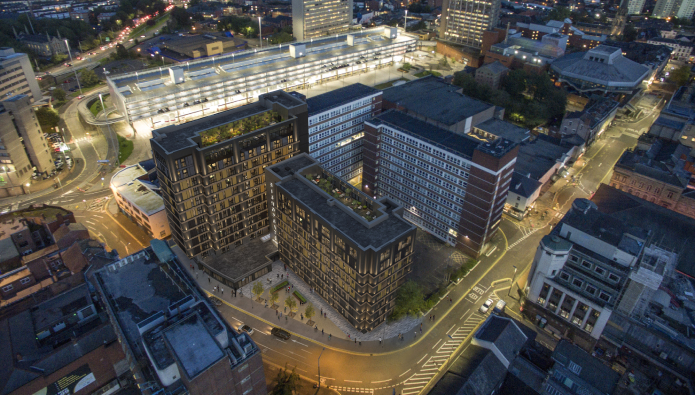
Fabrik Invest argues this puts an onus on developers and investors to take an active role in keeping urban centres alive.
“Our town and city centres were already struggling when the pandemic struck, with one in 12 shops closing in the five years to 2018,” Jacob said. “Yet town centres do so much to help communities connect. That’s something that has become infinitely more valuable as a result of the prolonged isolation of the pandemic. Developers have plenty of scope to help nurture our towns and cities’ growth and this needs to be a key focus moving forward.”
By March 2020, the month when the first lockdown began, only 29% of high street addresses were retailers, with squeezed salaries and the shift to online shopping two of the key reasons behind this. Both of these things have been significantly exacerbated by the pandemic, which has led to severe job losses and a stay at home message from government.
The closure of offices, leading to a large increase in remote and flexible working, and the shift to students studying online has intensified the problem, due to a substantial decline in the number of those passing through town and city centres. Footfall is everything for retail units – without it, it’s hard (even impossible) for them to function.
More than 17,500 chain stores closed in 2020, with the impact of the pandemic still yet to be fully felt. According to PwC research compiled by the Local Data Company (LDC), almost 10,000 chain stores disappeared from Great Britain’s retail locations in 2020.
Overall, 7,655 shops opened, compared to 17,532 closures, a net decline of 9,877. Although a decline was to be expected in a pandemic, this is still the worst ever seen, with an average of 48 chain stores closing every day, and only 21 opening.
The findings starkly compare to 2015, which witnessed net decline of just over 1,000, 50% more openings and 25% fewer closures than 2020.
As well as declining footfall, people’s changing preferences and priorities have had an impact on town centres in recent years. Although the pandemic has pushed more people towards country living, that followed a boom in demand for city-centre homes, which Fabrik argues is likely to pick up once more as the vaccine rollout continues and we look forward to a post-pandemic return to relatively normal life.
“People increasingly want everything on their doorsteps – to live within walking distance of excellent restaurants, a selection of shops and the best leisure facilities available,” Jacob added.
“The relaxation of planning laws meant that many old office spaces could be converted into residential buildings, but we need to balance that with keeping commercial premises in urban centres too, as those are a key part of the reason that people want to live centrally.”
The planning law relaxation has allowed people with B1 office space to convert it into residential accommodation without the need for a full planning application, provided they stick to national framework guidelines. This move has led to a lot of unused office space being turned into homes and continues to do so to this day. Jacob says Fabrik Invest regularly offers such developments for investment.
Bishopgate Gardens in Preston, a development from The Heaton Group, is a prime example of this. The office block, vacant since early 2019, is now being converted into 130 one, two and three-bedroom apartments, with shared social spaces including a stylish lounge area, coffee pod café, shared working space, reception area with 24/7 concierge and show-stopping rooftop gardens on the eighth and eleventh floors.
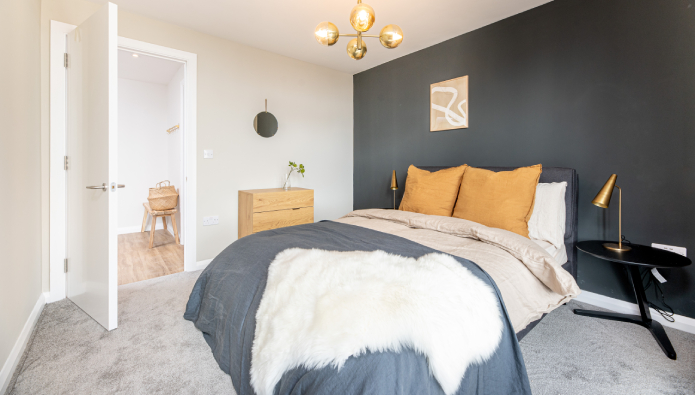
Once complete, it will also be home to seven retail units on the ground floor, including a deli, barbers, beauticians, and florist. Budding entrepreneurs are currently being sought to take over the high-spec shops, which face onto the development’s impressive plaza.
“With commercial to residential conversions, there’s often plenty of scope for developers to provide retail space on the ground floor,” Jacob concluded.
“This will be key to the long-term survival of our town and city centres as places where individuals can connect with local businesses and with the wider community. In the post-pandemic era, this will be more important than ever in keeping the commercial heart of our cities alive.”
Some believe co-living – and similar models – will receive a bounce post-Covid as society starts to reopen and people seek community living and greater social interaction. Co-living developments also often include designated remote working facilities, which may appeal to the fast-increasing demographic of permanent homeworkers in the UK.
One of the biggest names in this fast-growing but still nascent and highly niche sector is Vonder, which recently announced that Wembley will be the next location to join its London portfolio. Vonder says it will operate a long-term master lease on 313 apartments as a triple-net tenant across 14,000 square metres of residential space.
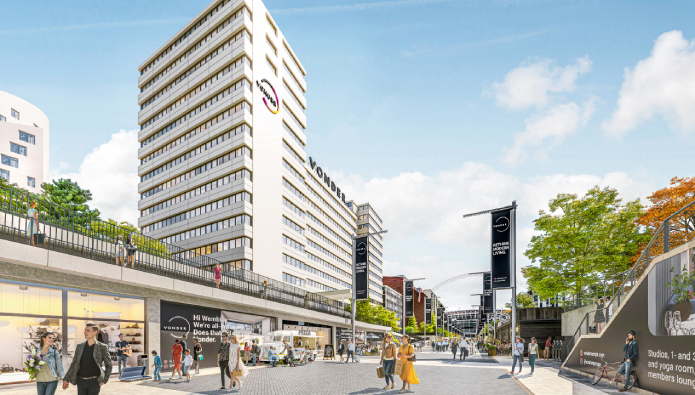
The company is taking on all operational and marketing costs, as well as full property management for the new scheme. Vonder Wembley follows hot on the heels of the announcement of the brand’s latest co-living project, Vonder Skies, which recently opened in Brentford.
Vonder Wembley, which is due to launch in May this year, is located at 1 Olympic Way, immediately next to Wembley Park tube station and just a few minutes’ walk from the world-famous stadium – often known as the home of football.
The scheme spans over 15 floors, offering 174 studios, 121 one-bedroom apartments and 18 three-bedroom apartments. All of the 313 apartments come fully furnished with contemporary, stylish design for Vonder members to enjoy.
The Vonder team says the Wembley complex will taking co-living to a whole new level, with a private and exclusive member lounge on the 15th floor, hosting community and cultural events with ‘spectacular panoramic views’ of the capital.
Like Vonder’s other branded projects across the globe, Vonder Wembley will aim to provide a hassle-free, all-inclusive approach to renting in the capital. With ‘consumers wants and needs’ at the heart of the business, the site will offer access to ‘state-of-the-art’ ground floor amenities including co-working spaces with conference rooms, a gym, yoga room, private cinema, café, lounge with shared kitchens and a games room.
“Wembley is one of the most iconic and desirable areas to live in London. We are very excited to bring our evolved concept to the market here,” Tomer Bercoviz, chief executive of Vonder, said of the scheme.
“This is a top-notch co-living product which is unprecedented in London. Vonder Wembley offers beautiful apartments, quality furniture and world-class amenities to cover all members’ needs, not to mention the one-of-a-kind rooftop lounge with outstanding views. This is the largest project that we will launch to date in the UK – and we have many more exciting developments in the pipeline.”
Wembley sits in zone 4 and just 10 miles from the heart of the capital. It has easy access to three rail stations and has been a prime spot for developers and investors in North West London in recent years.
More than most other places in this part of the capital, Wembley has benefited from huge regeneration projects over the years, including the new stadium, the redevelopment of Wembley Arena and the arrival, in more recent years, of London Designer Outlet and Boxpark Wembley.
Wembley Park tube station provides direct access to the Jubilee Line (only 15 minutes from Bond Street and Oxford Circus) or the Metropolitan Line (with Baker Street accessible within 10 minutes).
Other easy access routes include Wembley Central for the Bakerloo Line and overground lines, and Wembley Stadium which has rail services to Marylebone.
Elsewhere, Vonder recently expanded its co-living portfolio with a second site in Warsaw. The global co-living brand has announced that Warsaw city centre will be home to its latest project, UpTown by Vonder, presenting 113 brand new luxury apartments to the rental market in Poland’s capital.
The new project joins UpRiver by Vonder, the brand’s flagship site in Warsaw, which officially launched last year and will complete on the fifth stage of its development this month.
Located at 9 Dubois Street, on the doorstep to Warsaw city centre, the new development is described as being an ideal solution for those looking for modern, one-stop-shop living within a central location. The complex covers more than 54,000 sq ft of residential space and offers 36 studio apartments, 41 one-bedroom apartments, 28 two-bedroom apartments, and eight three or four-bedroom apartments with views of the Warsaw skyline.
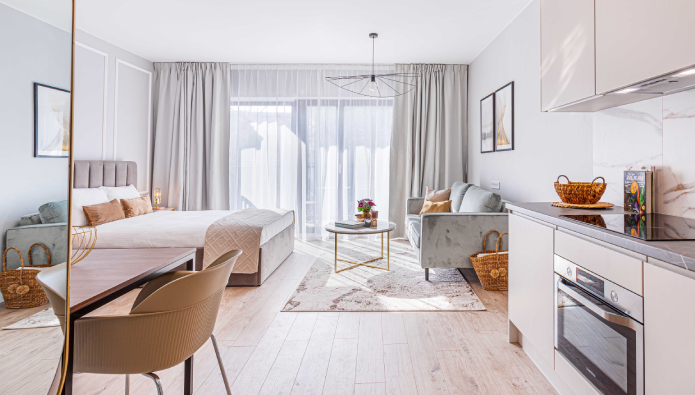
This latest expansion aims to meet an increasing trend and desire for rental living. Over the past decade, the level of renting across Europe has risen, according to CBRE’s most recent co-living report. In 2018, some 31% of the EU population were living in the private rented sector, up from 27% ten years ago.
Vonder says it has recognised a huge opportunity to tap into this growing market and together with the brand’s biggest project in Warsaw, UpRiver by Vonder, the company will now retain the master lease for over 500 apartments in Poland’s capital city.
Vonderers (the name for those living in Vonder developments) choosing a home at UpTown will have the opportunity to access more than 5,000 sq ft of amenities that will be available at UpRiver by summer 2021, including a fitness and yoga studio, cinema room, café, bar, co-working spaces with conference rooms, shared kitchens, as well as concierge service and parking.
It only takes a 15-minute drive to get between the two developments, with the Vonder team saying this makes it a viable option for many millennials wanting to live independently but still looking to have the opportunity to be a part of a wider community.
Bercoviz said of the company’s expansion in Poland: “We are continuing to see a growing trend of young professionals seeking a sociable housing experience as a result of Covid-19. Our ongoing success at UpRiver, with a steady 95%-plus occupancy rate, has proven to us that Warsaw is a great city for our concept, with many young professionals searching for high-quality urban homes, with access to a vibrant global community.”
He added: “We are incredibly excited to launch UpTown and to be completing the fifth stage of UpRiver. Both sites will offer two different types of development in great locations, with access to a wide variety of amenities. The purpose of launching two sites is to create a co-living ecosystem whereby the community will have the benefit of living as a Vonderer no matter what property they choose.”
UpTown by Vonder offers a more central Warsaw location. There is easy access to the local metro station - Dworzec Gdański – which is only 13 minutes’ walk away. The development is part of an established residential area benefitting from a convenience store within the building and surrounded by several parks, shops, cafés and restaurants, all within walking distance.
The biggest shopping centre in Warsaw, Arkadia, and Krasinski Palace are only 10 minutes by foot, while local tram and bus stations are also within walking distance.
UpTown is the latest development to join Vonder’s existing international portfolio, which now spans over 30 locations across London, Berlin and Dublin, with Dubai and the US coming soon.









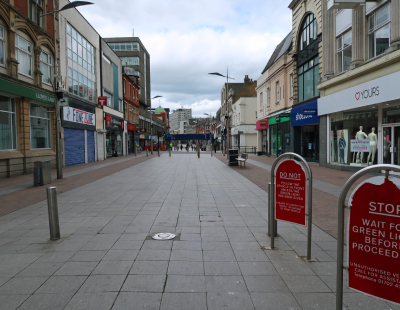

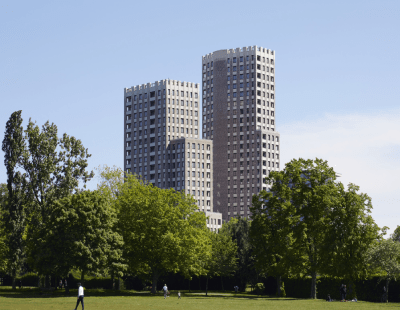


.png)









Join the conversation
Be the first to comment (please use the comment box below)
Please login to comment